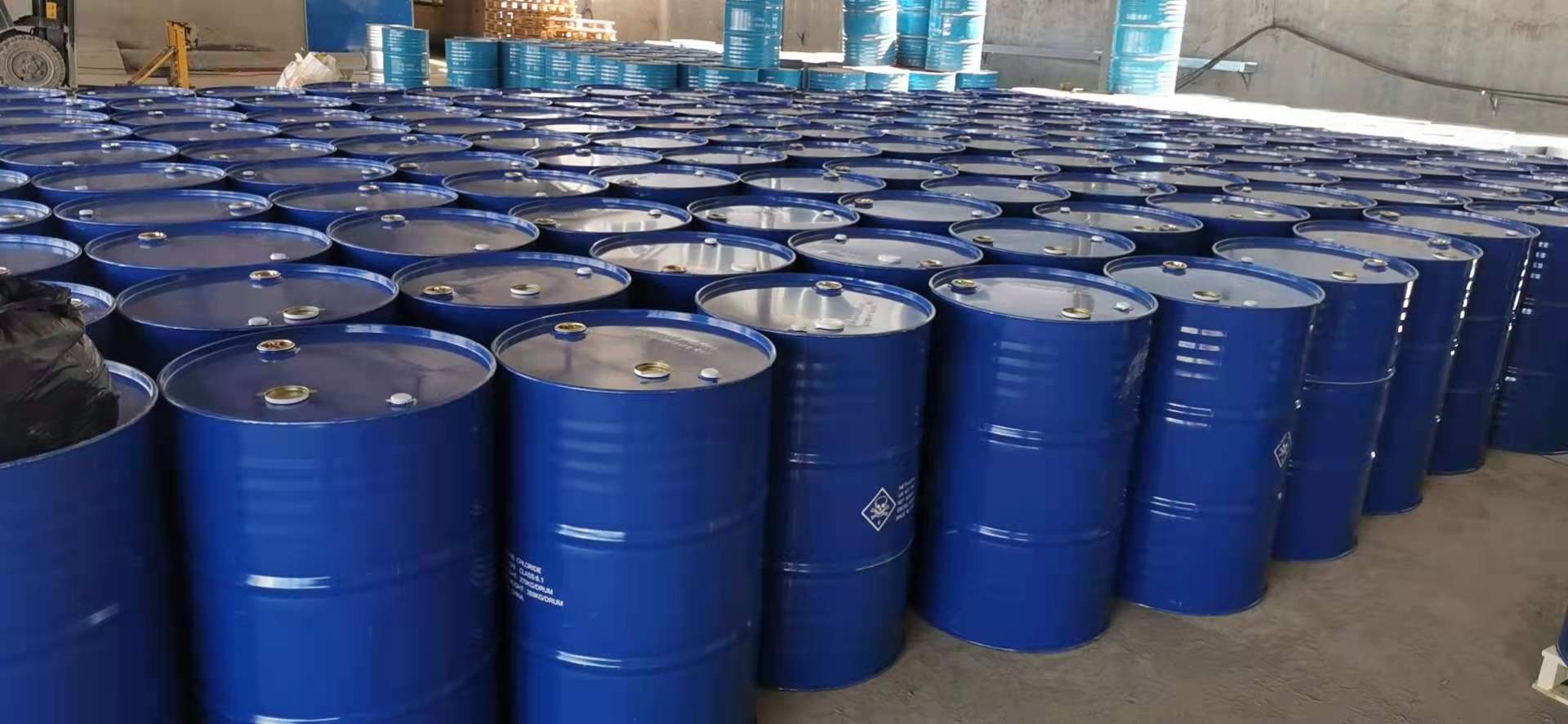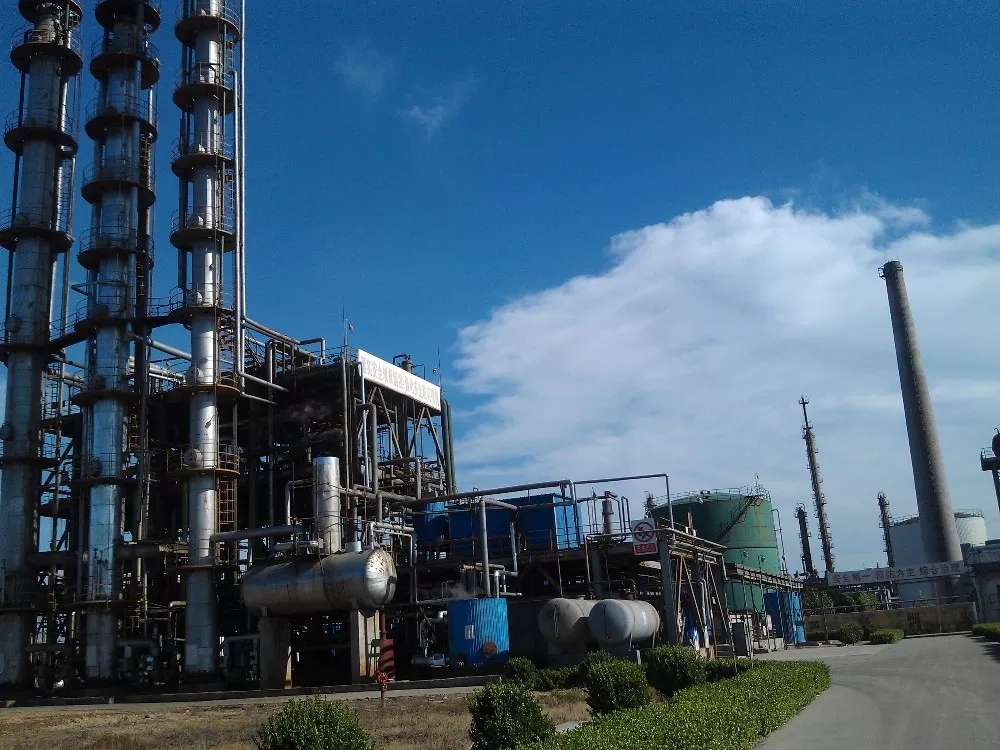What is Methylene Chloride?
Methylene chloride, also known as dichloromethane (DCM), is a volatile organic compound with the chemical formula CH2Cl2. It is a colorless, volatile liquid with a mildly sweet aroma. Methylene chloride is widely used in various industrial applications due to its unique properties and versatility.

Methylene Chloride COA & MSDS
 QIDI CHEM Methylene Chloride COA.pdf
QIDI CHEM Methylene Chloride COA.pdf
 QIDI Chem Methylene Chloride MSDS.pdf
QIDI Chem Methylene Chloride MSDS.pdf
Definition of Methylene Chloride
Methylene chloride is an organic solvent that is derived from methane gas through a chlorination process. It is composed of two chlorine atoms and a single carbon atom, resulting in its chemical formula CH2Cl2. This compound has a low boiling point, making it easily vaporizable at room temperature, and it does not conduct electricity.
Chemical Properties of Methylene Chloride
Methylene chloride exhibits several significant chemical properties, making it valuable for various industrial processes. Some of its key characteristics include:
Solvent Properties: Methylene chloride is an excellent solvent for various substances, such as resins, oils, fats, and polymers. It is widely used in paint strippers, adhesive removers, and degreasing agents.
Volatility: The low boiling point of methylene chloride allows it to evaporate quickly, making it suitable for applications that require fast drying times.
Stability: Methylene chloride is relatively stable and non-reactive with many chemicals, which enhances its utility in different industrial settings.
Density: This compound has a higher density than air, which can lead to the accumulation of vapors in low-lying areas.

Uses and Applications of Methylene Chloride
Methylene chloride finds application in various industries, including:
Paint and Coatings Industry
Methylene chloride is widely used in paint strippers and paint removers due to its effective solvent properties. It efficiently dissolves paint, allowing easy removal from surfaces.
Pharmaceutical Industry
In the pharmaceutical sector, methylene chloride is utilized for extracting essential oils, flavors, and fragrances from plants.
Adhesive Industry
Methylene chloride serves as an important component in adhesive formulations, facilitating the bonding of materials.
Chemical Manufacturing
The chemical industry employs methylene chloride as a solvent for manufacturing various chemicals, including pharmaceuticals, agrochemicals, and fine chemicals.
Safety Precautions
Despite its widespread use, methylene chloride poses certain health and safety risks. It is crucial to follow safety guidelines and precautions when handling this compound, including:
Use in well-ventilated areas to prevent the accumulation of vapors.
Avoid contact with skin, eyes, and clothing. Wear appropriate personal protective equipment (PPE) such as gloves and goggles.
Store methylene chloride in tightly sealed containers, away from heat and open flames.
Dispose of methylene chloride properly, following local regulations.
Environmental Impact
Methylene chloride can have adverse effects on the environment, particularly in terms of air pollution and groundwater contamination. Its volatility contributes to the formation of ground-level ozone, a harmful air pollutant. Additionally, improper disposal can lead to contamination of water sources.
Alternatives to Methylene Chloride
Considering the safety and environmental concerns associated with methylene chloride, researchers and industries have been actively exploring alternative solvents and processes. Some potential substitutes include:
Bio-based solvents derived from renewable resources.
Water-based solvents that reduce VOC emissions.
Other less toxic organic solvents.
Industry Regulations and Guidelines
Various regulatory agencies, such as the Environmental Protection Agency (EPA) and the Occupational Safety and Health Administration (OSHA), have established guidelines and standards for the safe use of methylene chloride in industrial settings. Compliance with these regulations is essential to ensure the well-being of workers and the environment.
Methylene Chloride in Consumer Products
In recent years, there have been concerns about the use of methylene chloride in certain consumer products, particularly paint strippers. Several countries have taken regulatory actions, including banning or restricting the sale of these products to protect consumers from potential health risks.
Health Hazards and Exposure Risks
Prolonged exposure to methylene chloride can lead to various health issues, including:
Irritation of the skin, eyes, and respiratory system.
Headaches and dizziness.
Nausea and vomiting.
Central nervous system depression.
Cardiac arrhythmias and other heart-related problems.
It is essential for workers and individuals to be aware of the potential risks and to take appropriate safety measures.
Emergency Response and First Aid Measures
In the event of accidental exposure or ingestion, immediate action is necessary. First aid measures may include:
Moving the affected person to a well-ventilated area.
Removing contaminated clothing and washing the exposed skin with water.
Seeking medical attention promptly.
Proper Handling and Storage of Methylene Chloride
To minimize risks associated with methylene chloride, proper handling and storage procedures should be followed, such as:
Using closed systems or ventilation to prevent the release of vapors.
Storing methylene chloride in designated areas away from incompatible substances.
Labeling containers clearly to indicate the contents and associated hazards.
Case Studies and Incidents Involving Methylene Chloride
There have been several incidents related to methylene chloride exposure, both in industrial settings and among consumers using products containing the compound. These case studies serve as reminders of the importance of safety measures and regulatory compliance.

Conclusion
Methylene chloride is a versatile organic solvent with widespread industrial applications. However, its use comes with certain risks to both human health and the environment. Safety precautions, proper handling, and the exploration of alternatives are crucial steps toward minimizing these risks and ensuring a safer working environment for everyone.
FAQs
Is methylene chloride harmful to humans?
Yes, prolonged exposure to methylene chloride can cause health issues, including respiratory irritation and central nervous system depression.
Can I use methylene chloride-based paint strippers at home?
It is not recommended due to the associated health risks. Water-based and less toxic alternatives are safer options.
What should I do if I accidentally spill methylene chloride?
In the event of a spill, ensure proper ventilation, clean up the spill immediately, and dispose of contaminated materials following regulations.
Is methylene chloride still widely used in industries?
While its use has declined in some applications due to safety concerns, methylene chloride remains an essential solvent in certain industries.
Are there any eco-friendly substitutes for methylene chloride?
Yes, researchers are actively exploring and developing eco-friendly substitutes for methylene chloride. These alternatives aim to provide similar solvent properties without the associated health and environmental risks. Bio-based solvents derived from renewable resources, such as citrus-based solvents and terpenes, are gaining popularity due to their low toxicity and biodegradability. Water-based solvents, which have a reduced impact on volatile organic compound (VOC) emissions, are also being adopted in various applications. As industries and consumers become more conscious of environmental impact, the demand for eco-friendly solvents continues to grow.
How does methylene chloride affect the ozone layer?
Methylene chloride is considered a volatile organic compound (VOC), which contributes to the formation of ground-level ozone through chemical reactions in the atmosphere. Ground-level ozone is a major component of smog and can lead to respiratory issues and other health problems in humans. Moreover, ozone depletion in the upper atmosphere is primarily caused by other ozone-depleting substances like chlorofluorocarbons (CFCs) and hydrochlorofluorocarbons (HCFCs), not methylene chloride.
Can methylene chloride be found in food products?
Methylene chloride is not intentionally added to food products. However, traces of the compound may be detected in some food items as a result of the extraction process used to obtain natural flavors and essences. The use of methylene chloride in food products is tightly regulated, and its presence is usually limited to very low levels that are considered safe for consumption.
Is there a connection between methylene chloride and cancer?
Studies have shown that prolonged exposure to high levels of methylene chloride may increase the risk of certain types of cancer, particularly lung and liver cancer. As a result, regulatory agencies have established permissible exposure limits for the compound to protect workers and consumers from potential health hazards. It is crucial to follow safety guidelines and use protective measures when handling methylene chloride in industrial settings or consumer products.
Can methylene chloride cause addiction or dependency?
Methylene chloride is not known to cause addiction or dependency in the same way as drugs or alcohol. However, it is essential to handle the compound with caution and in accordance with safety guidelines to avoid adverse health effects. Misuse or prolonged exposure can lead to health issues, but it is not linked to addictive behavior.
Are there any ongoing efforts to further regulate methylene chloride use?
Yes, regulatory authorities continuously review and update guidelines regarding the use of methylene chloride to ensure public safety and protect the environment. As more research emerges about its potential risks, there may be further restrictions or bans on specific applications of methylene chloride to minimize exposure and associated health concerns.
In conclusion, methylene chloride is a valuable solvent widely used in various industries. However, its use requires careful consideration of safety measures due to potential health and environmental risks. As awareness grows, industries are actively seeking and implementing safer alternatives to reduce their reliance on methylene chloride and create a more sustainable future. By following safety protocols and embracing eco-friendly substitutes, we can strike a balance between industrial progress and safeguarding human health and the environment.
English
العربية
Français
Русский
Español
Português
Deutsch
italiano
日本語
한국어
Nederlands
Tiếng Việt
ไทย
Polski
Türkçe
አማርኛ
ភាសាខ្មែរ
Bahasa Melayu
ဗမာစာ
Filipino
Bahasa Indonesia
magyar
Română
Čeština
қазақ
हिन्दी
فارسی
Kiswahili
Slovenčina
Slovenščina
Norsk
Svenska
українська
Ελληνικά
Suomi
עברית
Latine
Dansk
اردو
বাংলা
Hrvatski
Afrikaans
Eesti keel
සිංහල
latviešu
Български
Hausa
íslenska
Kurdî
Lietuvių
isiZulu












